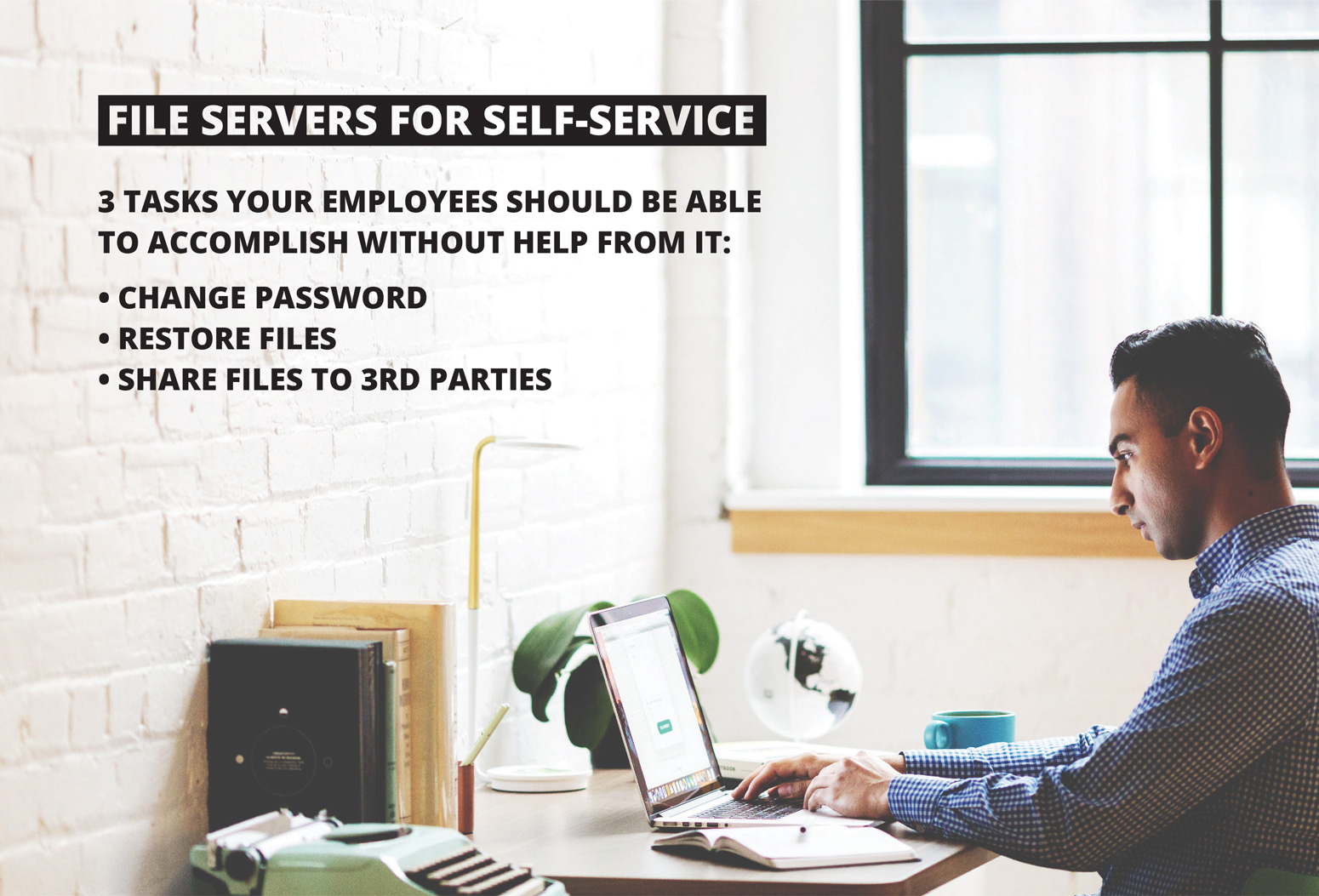Successful businesses quickly realize they need a file server for storage and sharing. As we know from our article debating the merits of public cloud versus an onsite file server, the private cloud is clearly the way to go. In this article, we’ll help you choose the right one for your needs and business.
The first thing to know is that not all private clouds or file servers are made alike. At first, file servers were simple repositories for storing data within an office. In recent years, however, file servers have evolved beyond just storage and now include features to simplify maintenance, provide cloud-like file sharing, and offer built-in disaster recovery tools.
This trend has gone largely unnoticed by many business leaders — and even IT professionals. Let’s lift the hood and look at five factors businesses should consider when choosing a modern, onsite file server or private cloud.
- Remember IT are humans too
To make life easy for the people on your IT team, it is always better to have a file server with an easy-to-use interface instead of one that requires learning and managing the server with the command line. Today you can find file servers with a good graphical user interface (GUI), which makes operation and integration much easier and more intuitive. For example, Synology was the first company to introduce the Windows-like, browser-based GUI to the NAS market.
- Easy to access for employees
The next consideration is making sure that your file server is easy to access and use by employees and other non-IT users.
The best solution is one that allows traditional network sharing and mapped drive shortcuts that help people find data stored on the file server. The right solution will also offer a browser-based file explorer allowing employees to access files from anywhere (including via mobile) and will give users the ability to sync files across multiple devices. That way, employees can access or share files from outside the office with the benefit of keeping sensitive data stored on the company’s own equipment.
- Self-service IT is the future
Another issue to consider is the impact that storage-related requests can have on your IT staff. In a large organization with many users, your IT staff might become very busy just by helping those users do some simple tasks.
Save them the trouble with a business file server solution that allows employees to safely handle many storage issues themselves. Simple things like changing passwords and restoring files shouldn’t require someone to fill out a help ticket.
Some file server solutions automatically take “snapshots” of files and folders up to every five minutes to make it possible for users to browse and restore previous versions of files when an accident occurs. And even though it’s an on-prem server, your employees can share links to third parties so they can access files — again, without bothering IT.

- Built-In remote backup capability
The next factor to consider is to ensure that you can easily back up your file server. To satisfy the “3-2-1” data backup rule for disaster recovery, it’s best to have backups in off-site storage locations or the cloud. The best on-prem file servers include built-in software to back up data to another server, drives, and popular cloud storage providers. Storage makers like Synology offer their own cloud backup service, making integration easy for businesses who already use their on-site servers.
This market moves fast, and your vendor needs to move with it. Make sure the file server you choose regularly provides automatic software and security updates so that it doesn’t become outdated. Also, look for vendors that update their systems frequently, so that you always receive the benefit of the latest advances. Synology is continually improving its products and automatically updates its DiskStation Manager (DSM) to make sure its customers stay up to date.
Modern on-prem file servers can give employees and outside IT the access and flexibility they need to be successful — if you know what to look for. Do your business a favor and keep these five considerations in mind.
To learn more, visit this link. And if you want to chat with us, reach out to us on Twitter, Facebook, or visit our contact page.
